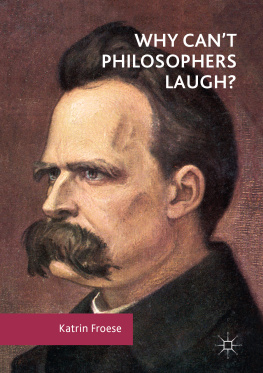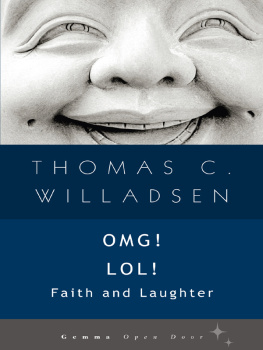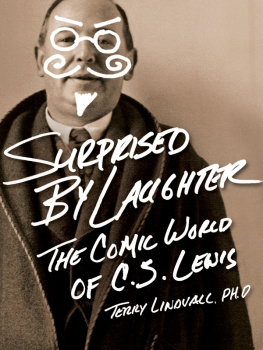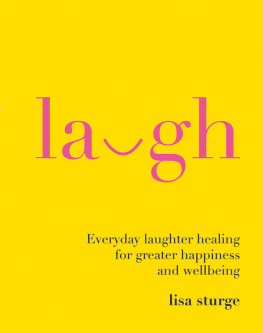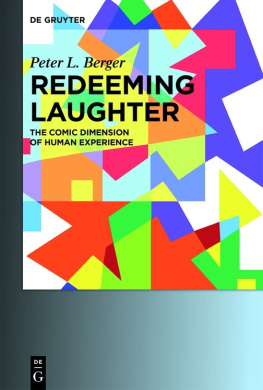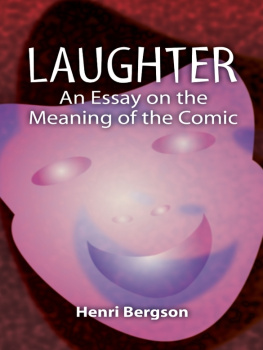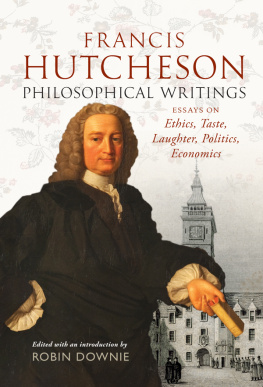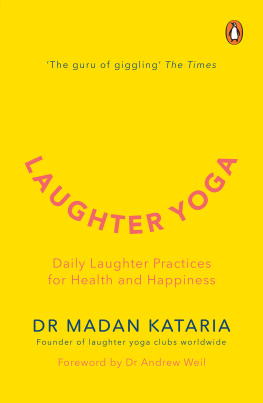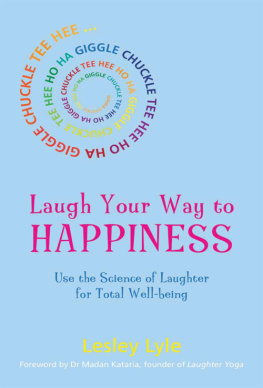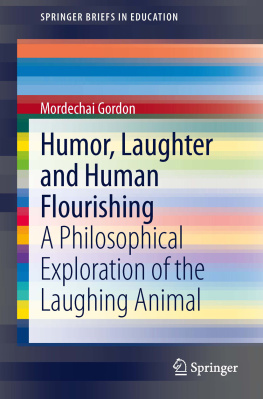1. Introduction
On the surface, it seems as though we live in societies that celebrate laughter. Comedies abound on media and television, and an intense pressure to appear happy prevails, particularly in North American contexts. The tragic dimension of existence is pushed out of view and its impact is often minimized through mind-altering happy pills. But what is important to note about the seemingly prominent role accorded to laughter is that it is primarily a form of entertainment rather than a way of living life. Many television comedies are distractions that are not meant to provoke thought but instead save us from thinking too deeply. While laughter occasionally intrudes unexpectedly into our daily experience, it is largely reserved for after-hours when the more serious work of the day is over. In other words, we do not tend to take laughter seriously. Instead, it becomes a mere hiccup that interrupts our routine to provide momentary respite, while at the same time saving us from our own reflections. This begs the question: are laughter and thought inherently antithetical to one another? Is laughter the arch-enemy of philosophy?
It is no surprise that in academia, that most earnest of pursuits, there is also a prejudice against laughter. Nietzsche provides a biting caricature of the specialist academic in his portrayal of a man who devotes his entire life to the meticulous study of the brain of the leech and brags I am the conscientious man of the spiritand scarcely anyone is sterner, stricter and more severe in things of the spirit than IHow long have I probed this one thing, the brain of the leech so that the slippery truth should no longer slip away from me! Here is my kingdom ( IV 4). Even the mere study of the leech would have been too broad, and the devoted ascetic focuses on its brain in the hopes of finding here a domain in which he can remain the unchallenged master. This parable offers a biting satire of the growing irrelevance of the intellectual who retreats into a cocoon of expertise as a way of hiding from the world and does so with an exaggerated ascetic rigour. Asceticism is the enemy of laughter.
The inspiration for this book comes from comments addressed to me in my first year of employment when I was told there was too much laughter emanating from my classroom. We were reading Nietzsche, who is at times deliciously funny. The comment is of course laden with assumptions. Laughter is presumed to be antithetical to learning, which is by its very nature, serious. This led me to ponder the question of why laughter is seldom addressed by philosophers. Modern and contemporary philosophy abounds with speculation about melancholia, sadness and existential Angst , which are all emotions that bring to the surface the fragility of the human being. Anxiety and melancholy are assumed to be conducive to thought, perhaps because they precipitate quests for meaning, but laughter is not accorded such a prominent place.
My aim in writing this book is not to provide a comprehensive overview of theories of laughter and humour nor is it to provide a survey of the field. It is not within the scope of this project to examine all phenomena that make us laugh, such as tickling and release from physical tension. Instead, I attempt to ascertain through the works of philosophers themselves, why laughter is seldom addressed as a serious topic of discussion in the hallowed halls of philosophy. I will do so by exploring the works of some thinkers from Chinese and Western traditions, who either discuss the comic and/or laughter or employ it in their writing. Are there certain aspects of their philosophies that make them more amenable to approaches to the comic or does the comic change the manner in which they do philosophy? Far from precluding thought, the humorous can lead to a different kind of thinking that treasures anomalies and paradoxes. Because the comic operates at the margins of thought, it can facilitate its transformation. But, I also want to stress that this is not the purpose of the comic, for to claim that it is, would be another way of making it the servant of thought. Laughter is no prelude to philosophy, but nonetheless a philosophy that is open to laughter might take on a very different hue indeed.
Laughter itself is always a physiological reaction, which can literally take over the body. At times it is linked to the humorous or comic and at other times is unrelated. The only philosopher I address in this text who directly discusses the physical dimension of laughter, is that most stodgy of philosophers, Immanuel Kant, who perhaps because of the rigid mind/body divide that he maintains is acutely aware of laughters physicality and perhaps for this very reason, relegates it to the margins of his philosophy. Anca Parvulescu in her book, Laughter: Notes on a Passion , explores why immoderate laughter has largely been banished from civilized society. She underlines the fact that laughter makes us uncomfortable because it transgresses boundaries and also reminds us of our primitive nature which occasionally intrudes upon our ordered, intellectualized domains. The mouth is wide open when we laugh, and is if it comes to remind us that the mouth has two Latin names: os and bucca (Parvulescu, , p. 24). Due to its transgressive nature, we seek the company of others when we laugh, as a means of providing us with some social security in the midst of this troubling eruption. In other words, we huddle together with others in order to seek social approval in the midst of our transgression. Children do not mind laughing alone and can often get an entire table of adults to succumb to peals of laughter. Philosophy has been traditionally the activity whereby we tame the unbounded by putting it into words. For this reason, words can never capture laughter.
Laughter cannot always be equated with the comical. As John Morreall has noted, the comic is often related to a perception of incongruity. He maintains that it is based on the fact that human beings work with learned patterns so that the future turns out like the past while incongruity violates these mental patterns and our normal expectations (Morreall , p. 10). If I show up to lecture with a piece of underwear dangling from my pants because I had forgotten to check them when taking them out of the laundry, my students would find this funny, because it is incongruous with my earnest role as a professor. We delight in such incongruity as long as we ourselves are not the butt of the joke. But the language of incongruity itself illustrates how wedded we are to the language of congruency and its attendant rationality. What Morreall, following Schopenhauer, refers to as incongruity is often not only unexpected but represents a resurgence of things that we traditionally spurn. The expected patterns of our lives are not just intended to produce familiarity, but to prevent truths with which it is hard to live from cropping to the surface. The underwear in the classroom reminds the unfortunate professor and her or his laughing audience that she or he too is a human being with bodily functions. It is this which we often try to forget while practising philosophy.
Laughter and comedy throw into question the predominant role that we accord to ourselves as reasoning and symbolic creatures. When the ordinary, the mundane and the particular suddenly intrude and unsettle the realm of our symbolic constructions in ways that we perceive to be non-threatening (at least to ourselves), we are inclined to laugh. Of course, the comic can also be cruel, particularly towards those who are the targets of jokes. Furthermore, the unpredictable element plays an important role. It seems that the intellect must be taken by surprise. If I read the same funny story multiple times, its comic impact is diminished with each repetition. Laughter is an eruption. Repetition kills it. Children laugh, because they delight in surprises. A certain distance may be required to appreciate something as funny. I would be humiliated if I showed up in class with my underwear dangling from my pant legs. Only months or perhaps even years later, would I be able to recount this story and laugh. I do not revel in the laughter of others that may be directed towards me. I stand alone, distinct from the community of laughers that shames me.

